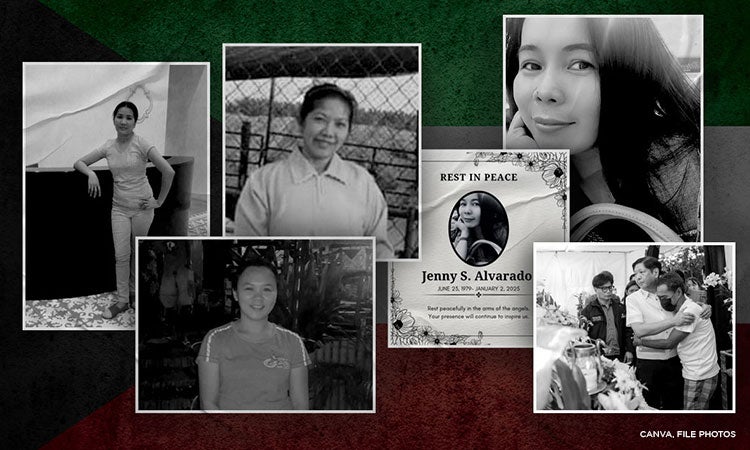Metro Manila, Philippines - It’s a heartbreaking story that repeats itself with chilling regularity: Filipinas lured by promises of better opportunities in Kuwait, only to find themselves trapped in a vicious cycle of abuse, exploitation, and, in the worst cases, death.
For many overseas Filipino workers (OFWs), the dream of sending money home to loved ones often turns into a death trap.
Despite repeated vows from both the Philippine and Kuwaiti governments to end the cycle of violence through agreements, the killings continue with no clear solution.
The harrowing stories of Filipina OFWs in Kuwait.
Dafnie Nacalaban
The year 2025 began with yet another tragic case: 35-year-old Dafnie Nacalaban, found dead two months after she was reported missing by the “primary suspect.”
She worked in Kuwait and was expected to come home in December 2024 to build her dream house for her family.
Jenny Alvarado
Jenny Alvarado, another victim, allegedly died of coal suffocation on January 2, 2025. Her employers in Kuwait reported the death, but controversy soon followed when a wrong body was initially sent to her family.
After a few days, the correct remains were returned, but her family suspected foul play, prompting an investigation by the National Bureau of Investigation.
Jullebee Ranara
The gruesome killing of 35-year-old Jullebee Ranara in 2023, allegedly at the hands of her employer, sparked outrage in the Philippines and led to a ban on newly hired domestic workers to Kuwait.
Ranara was raped and left to die in the desert by her employer. Like many before her, she dreamt of giving her family a better life, including a new home.
Her case ignited protests and calls for more comprehensive reforms.
Constancia Dayag
In 2019, 47-year-old Constancia Lago Dayag’s decomposing body was discovered in an apartment. Authorities later revealed that she died at the hands of her employer.
The Department of Labor and Employment confirmed the death, but no further details were disclosed.
Jeanelyn Villavende
Jeanelyn Villavende’s case in 2019 horrified the nation when it was revealed she had been tortured by her Kuwaiti employer, leading to her death. Her autopsy revealed details of abuse, including sexual assault. She died from "acute failure of heart and respiration, resulting from shock and multiple injuries."
Joanna Demafelis
Perhaps the most shocking of all was the case of 29-year-old Joanna Demafelis, whose body was discovered in a freezer in her employer's apartment, more than a year after she was reported missing.
Her tragic death prompted the government to impose a total deployment ban to Kuwait.
Her story hogged global headlines, drawing attention to the conditions faced by migrant household workers in Kuwait and other Gulf nations.
Government efforts to end the violence
The Philippine and Kuwaiti governments have made multiple efforts to end the abuse and violence faced by Filipino workers. In May 2018, both nations signed an agreement aimed at protecting OFWs from exploitation and ensuring that their rights were upheld by employers.
Under this agreement, a number of important measures were introduced:
A contract of employment template, which ensures that worker passports are deposited with the Philippine embassy and not confiscated by employers.
Filipino workers are entitled to one day off each week and at least seven hours of sleep per day.
Workers are guaranteed decent meals, sleeping quarters, and access to cellphones.
The two governments also agreed to provide a system for the Blacklisting and Whitelisting of recruitment agencies and employers involved in deploying workers.
In 2024, after Kuwait lifted its entry visa ban on Filipinos, both sides vowed to continue strengthening protections for OFWs, including electronic payment systems for salaries and the appointment of welfare officers to monitor and support migrant workers throughout their employment cycle.
However, despite these efforts, the number of Filipinas facing violence and death continues to rise, prompting concerns about the effectiveness of these measures.

